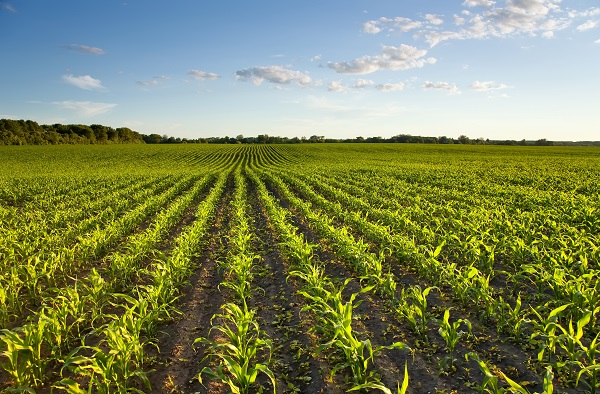24 January 2020
Historically, farm businesses were not necessarily run with a totally commercial outlook, but rather a mixture of commerciality and a way of life, with the possibility of any number of choices being made between the two extremes. This choice, if it has not already disappeared, is fast finding itself consigned to the ‘muck heap’. Farm businesses are continually having to review how they operate, and the annual profit figure and corresponding cash in the bank is now one of the most important figures on a farmer’s mind.
Demand for food production will continue despite future uncertainty
The Brexit deal and the Agricultural Bill will set the tone for farm profitability for years to come. Both are planned to become law in 2020. What this will look like is not at all clear, but one thing is clear; the way farm support is paid is going to change. Gone is the direct support, to be replaced by a public goods payment, based on delivering benefits to wider society. Personally, I would consider producing affordable food to be a public good, but outside the farming sector it would appear that this is not a commonly-held view. Food security, on the other hand, may have greater appeal and everything possible should be done to ensure that both affordable food and food security are key factors in moving the Brexit deal and the Agricultural Bill forward.
Food production can still, and should in most circumstances, remain the centre of all farm businesses and provide a strong platform to build for the future. Food consumption will never go out of fashion and, if anything, locally produced food is and will continue to be on an upwards trend. With the population forever increasing, the demand for food is destined to follow suit.
Turning back to support payments, there will of course be a transition period as we move from one support scheme to another. The effect of this change on many farm businesses could be catastrophic; you only have to look at the profit and loss account and it is all too clear how much of the farm profit is presently derived from direct payments. Defra are reporting that overall profitability fell in 2018 and this is without a reduction in the support payments, so just imagine how bad it could look when the new support mechanism is introduced.
Change can represent opportunity
Change is coming whether we like it or not, but there is a period during which the rule changes will be implemented. This means that there is an opportunity to take a fresh look at your business and really assess its capabilities, strengths and weaknesses, and decide what type of business you want to be running in the future. No two businesses are the same and thus the answers for one will not be the same for another. This is a positive as it enables you to create the business you want to run, specific to you, your knowledge, interests and skills, as well as your location. You therefore have a strong place from which to start this review.
Review your business and plan ahead
Every business needs to plan ahead; a three to five year plan is essential if you are to deal with the trading and regulatory environment in a positive and constructive way.
Once completed, this plan should not be put in the cupboard with other paperwork to collect dust, but rather it should be a continuously updated document and used as yard stick against your actual performance.
There needs to be a focused approach to the business review. You should ask yourself the following questions:
- How profitable is the existing business?
- Can this be sub-divided into the different sectors of the business?
- Can the business be improved to make it more profitable and match the efficiency of the top quartile?
- Is it possible to add value to an existing enterprise or will this be a new venture?
Businesses cannot stand still, and farming, like all other businesses, is increasingly reliant on technology and having to adopt smart working methods, continually refining the business model to make the most of the resources available and improve efficiency. This can include reviewing IT and technological advances, as well as workforce requirements to support diversification, and considering business consolidation and cost savings necessary for survival.
Diversification is a way of spreading business risk, and if that is the way you decide to go, then now is a good time to look at your options before direct payments start being reduced from 2021 onwards. There are some key factors you need to consider, such as:
- Location
- Financial resources
- Planning restrictions
- Potential for grant funding
- Labour, and
- Knowledge and experience.
Play to your strengths and embrace change
These are all key components to a viable enterprise. Different consideration and approaches may be required but preparation is key so do not be afraid to ask for advice. Control what you can control, work out what you are good at. Play to your and the business’ strengths so you have the business you want. Do not be afraid of change; embrace it. If you have to accept change but it is not your strength, delegate it to the person or adviser who is best placed to deal with it. Remember, you have a window of opportunity so do not waste it. Be resilient and remember that sometimes it is necessary to take a step back to steer onto the right path again.
We can help
If you would like help in reviewing your business, its potential and future profitability, please contact me or one of our rural specialists.


